5 things to watch in the Pennsylvania special election
The PA-18 race is seen as a test of GOP strength heading into the midterms.
Voters in Pennsylvania’s 18th Congressional District will head to the polls on Tuesday in a special election seen as a crucial test of the Republican Party’s political strength ahead of the 2018 midterm elections.
The Democrat, 33-year old Marine Corps veteran and former assistant U.S. attorney Conor Lamb is taking on 60-year old, four-term state representative Rick Saccone to represent the southwestern Pennsylvania district where President Donald Trump defeated former Secretary of State Hillary Clinton by nearly 20 points in the 2016 presidential election.
Tuesday’s special election was triggered by the resignation of Republican Rep. Tim Murphy last following a report that he allegedly asked an extramarital lover to end her pregnancy. The closely-watched contest has seen close to $10 million spent by conservative groups to boost Saccone and stave off concerns that the GOP is falling out of favor with the same blue-collar voters that propelled Donald Trump to the White House.
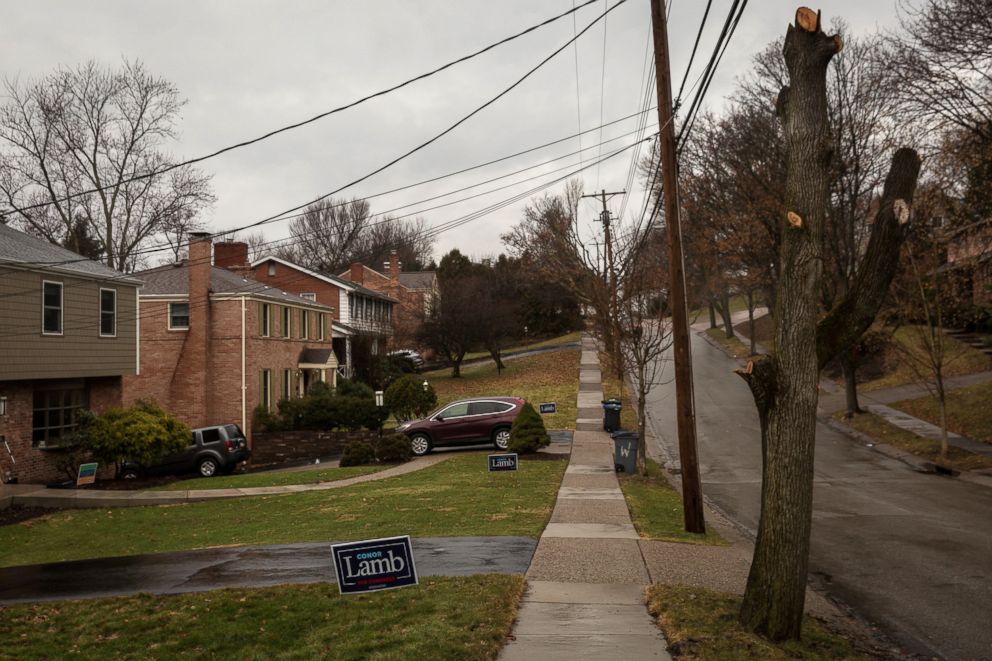
National attention on the race has reached a fever pitch over the past couple weeks, with both President Donald Trump and former Vice President Joe Biden swinging through the district in the past week to campaign.
Here are five things to watch ahead of Tuesday night’s contest.
National figures factor in
While Democrats are largely portraying this year's midterm elections as a referendum on President Trump, the most frequently referenced national politician in PA-18 has been Nancy Pelosi — Republicans have relentlessly attempted to tie her to Conor Lamb.
Ads pushed by outside groups riff on Lamb's surname, featuring jingles such as "Nancy had a little lamb" and arguing that the Democrat would be one of Pelosi's "sheep."
But the Democrats Lamb has brought into the district to campaign for him, including Biden, Rep. Joe Kennedy, D-Mass., and former Maryland Gov. Martin O’Malley, all show his desire to eschew any connection to the progressive base of the Democratic Party.
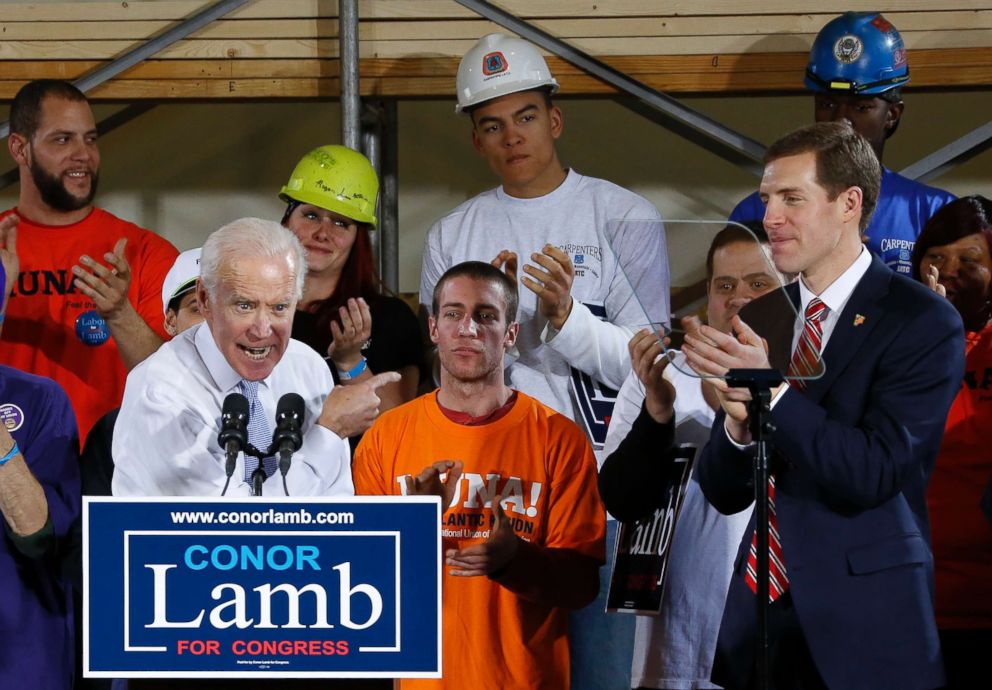
Saccone asserts that he was "Trump before Trump was Trump," referring to his promotion of populist policies during his first state representative campaign in 2010, and his claim that he wants to be Trump's "wingman" in Washington.
President Trump, who campaigned for Saccone on Saturday, praised Saccone during a rally in Pennsylvania.
"This is an extraordinary guy," the president said of the state representative. "We need him. He's a very competent person. He's a very hard worker. He knows things many people don't know."
By contrast, Lamb has avoided making the president a focal point of his campaign.
The Democrat has even pledged to work with the White House on issues in which there is a shared interest, such as the opioid epidemic.
The money gap
In what may be a signal of Democratic momentum heading towards November, Lamb has dominated fundraising efforts, raising more than $3.6 million since January, compared to Saccone's haul of just under $1 million over the same time period according to data from the Federal Election Commission (FEC).
The fundraising gap has led to criticism of Saccone from the Washington establishment, with some of their grievances — his inability to court donors and skeletal full-time campaign staff — appearing in news reports in recent days. But since Feb. 22, Saccone has upped his game. He's raised $284,458 while Lamb has raised $287,500 in the same period.
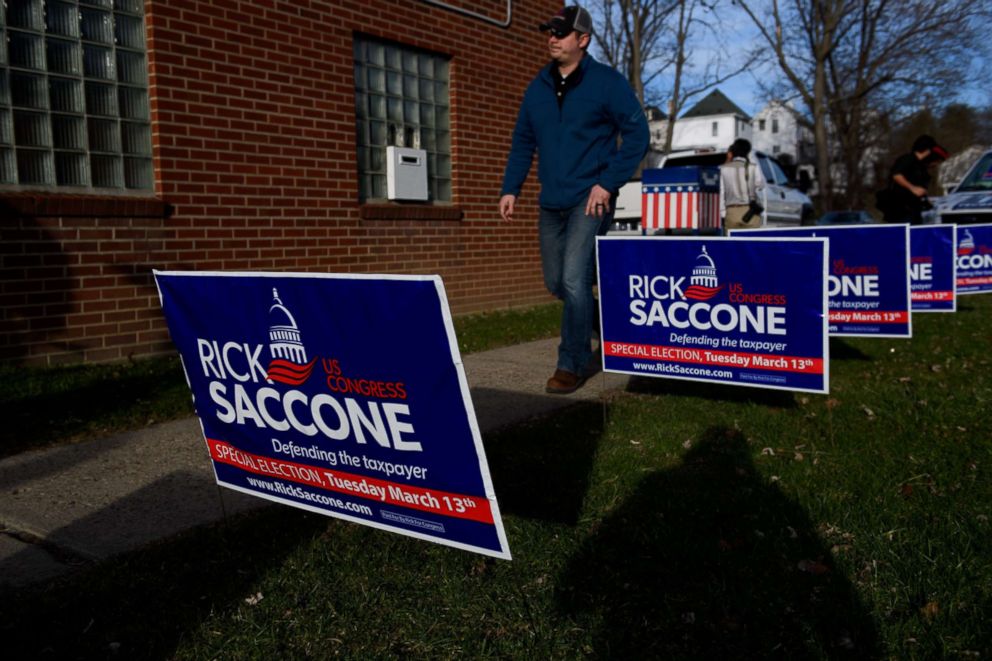
Instead, Saccone has been boosted by more than $10.6 million support from super PACs and outside groups, including $3.4 million from Congressional Leadership Fund, $3.5 million from the NRCC and $1.1 million from America First Action.
Outside money has played less of a role on Lamb's behalf. The DCCC has pitched in just $312,500 for television ads boosting Lamb. Pro-Lamb outside groups, in total, have spent about $1.7 million.
The opioid crisis
Saccone and Lamb have also battled over the best way to combat the opioid crisis, which has hit the state of Pennsylvania and the district especially hard.
According to a report from the Drug Enforcement Agency (DEA) and the University of Pittsburgh, 4,600 Pennsylvanians died in 2016 as a result of a drug overdose, with the crisis affecting all parts of the state according to the state’s Department of Health.
Saccone has emphasized his long record on the issue in the state legislature but has been criticized for saying that more funding to combat the crisis simply is not available.
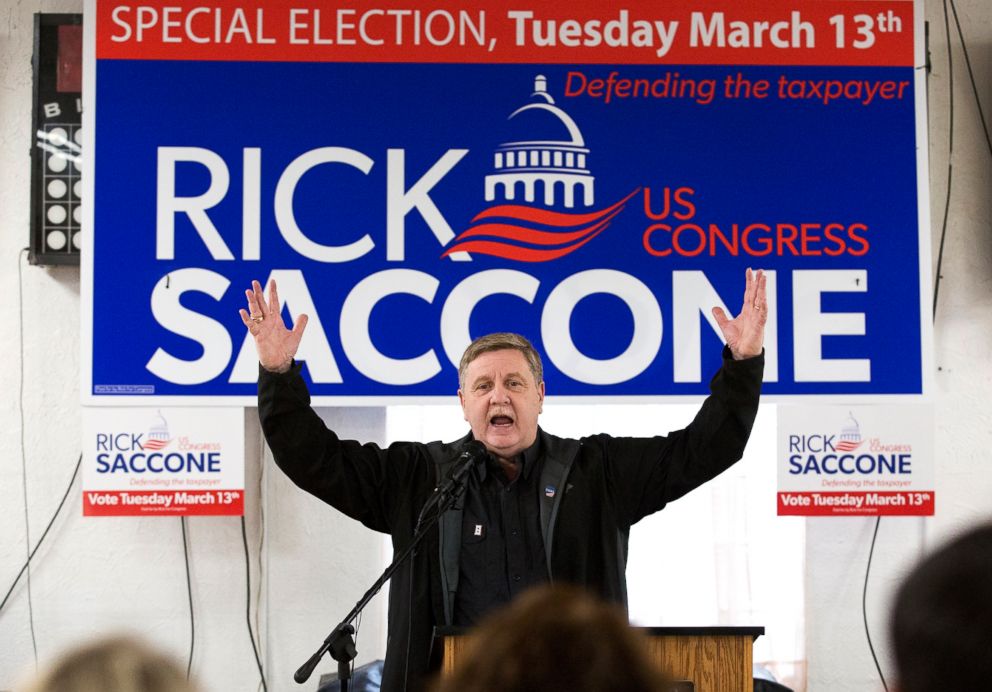
“We don't have any more funding, OK? We're going to try to cut the budget. So, where do I take it from?” Saccone told the mother of an opioid addict at a panel on the crisis last year, “Do I take it from the autistic children?”
Lamb praised President Trump’s declaration of the opioid crisis as a national health emergency as “important,” but said he would also support additional federal legislation to combat the crisis, including investments in treatment and rehabilitation.
Union power to be tested
The United Steelworkers held a get-out-the-vote rally for Lamb on Friday afternoon, complete with appearances by Democratic Gov. Tom Wolf, Rep. Mike Doyle, and union officials. The Democrat was further joined by mine workers in rural Greene County on Sunday.
Lamb's activities with the union members, particularly the steelworkers, took on greater importance after Trump signed stiff new tariffs on steel, a major industry in Pennsylvania. Under the new regulations, levies on steel imports will rise by 25 percent.
Political strategists speculated the timing of the announcement was done to help Saccone as steel, coal and other energy industries are a major employer in the district. The news of the tariff was met well in the 18th.
"Your steel is coming back," Trump told rally attendees on Saturday to cheers. "Those plants are going to be opening."
Both Lamb and Saccone said they support the president’s steel tariff. Trump won this district in 2016 partly on his promise to help American workers.
What's next?
No matter the result on Tuesday night both Lamb and Saccone are expected to run again in November – in different districts.
Pennsylvania has a new congressional map mandated by the courts that changes the lines of House districts for the November 2018 election.
Lamb is expected to run in the neighboring district (the 17th Congressional District), currently held by Republican Keith Rothfus. He has not said publicly what his post-Tuesday plans are but his hometown is in the 17th district under the new lines.
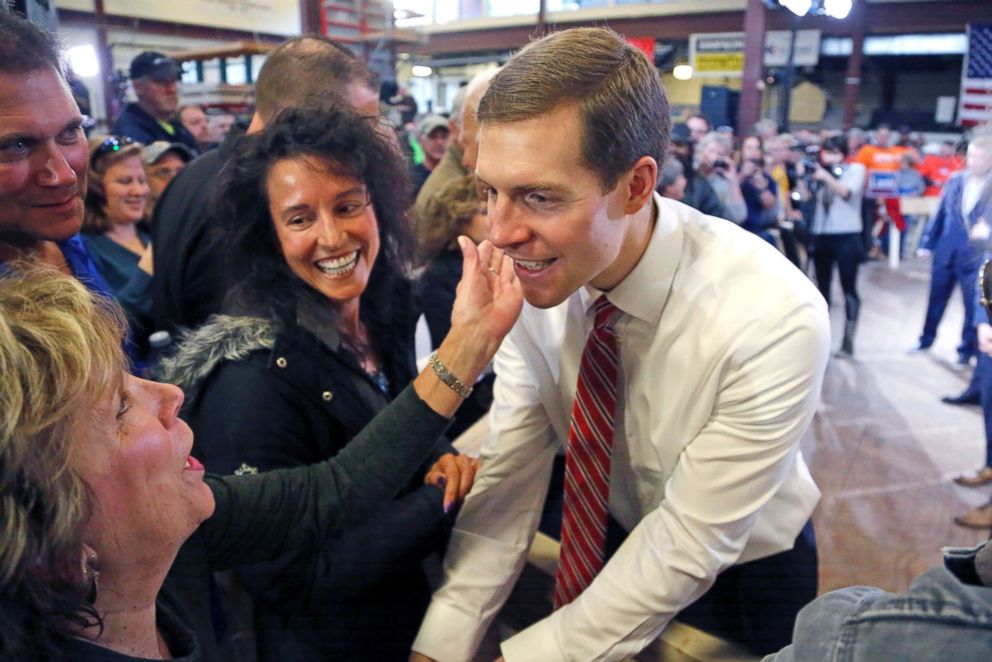
Meanwhile, Saccone’s hometown of Elizabeth falls in the new 18th Congressional District, which will tilt heavily blue given its inclusion of much of the city of Pittsburgh.
Saccone has indicated his interest in running again to represent the current 18th district’s closest geographic approximation — what will then be the deep-red 14th Congressional District — despite the fact that he will not technically live in the district. Volunteers for Saccone gathered signatures for the forthcoming March 20 filing deadline on Saturday.
"The State Supreme Court’s partisan map is causing mass confusion and chaos, but 57 percent of today’s 18th district is in the new 14th district. My focus remains on the same people I have gotten to know throughout this campaign, not the numbering of Congressional districts," Saccone said in a statement.
ABC News' Soorin Kim contributed to this report.
WATCH LIVE TONIGHT: You can watch livestreaming coverage of Pennsylvania’s special election as part of ABC News’ “18 for 18” coverage of the midterm elections starting at 8 p.m. ET on ABCNews.com or on the ABC News app available on the Apple App Store, GooglePlay Store, Apple TV App Store, and Roku Channel Store. Don’t forget to sign up for Midterm Elections Alerts to get more coverage of this year’s election season as par from our powerhouse politics team.




